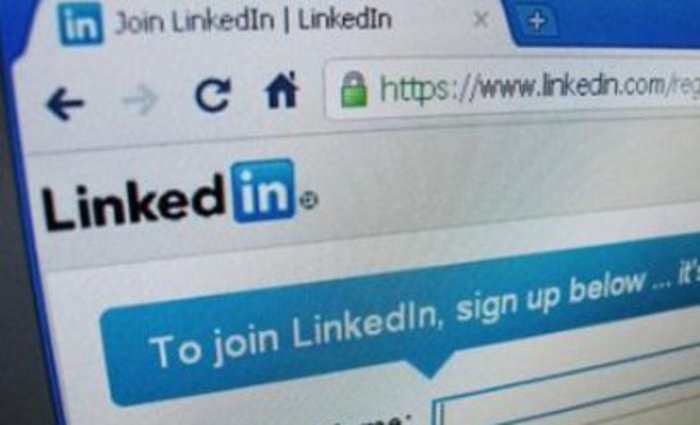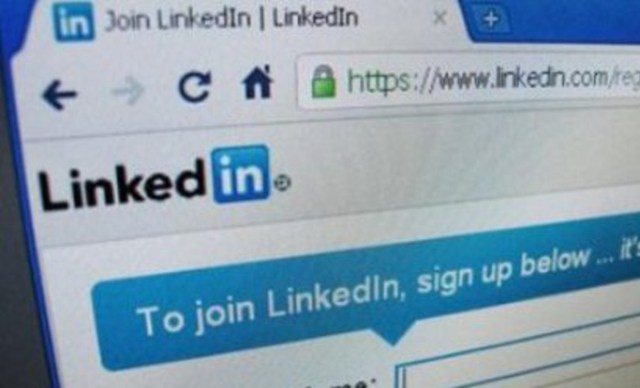
Here's what your fellow professionals from our LinkedIn group had to say in June and July.
We insured our ledger around 10 years ago after I couldn't sleep for a month due to large outstanding debtors (we got paid eventually)! Our claims to date have been minimal, but the discipline stops any emotional arguments over not supporting your clients. All we say is "sorry, but we can't get insurance on your debt". I thoroughly recommend it. [Click here to comment]
Fred Soar, managing director, Soar Printing
Have you ever had a trade supplier go direct your clients?
Yes… 12 months later he went broke because word got out. [Click here to comment]
Peter Arman, managing director, Central Imaging Technologies
A long-term customer tells you to drop your price 10%. What do you do?
If the client did not want to still use you, he would not be having the conversation. Tell them you get what you pay for and stick to your guns. If you do not put a value on your services, no one else will. [Click here to comment]
Alan Fawcett, co-owner, Watermarx Graphics
Will the National Broadband Network benefit your business?
Absolutely. Our business is completely in the cloud these days. The only downfall and bottleneck is the limitations of ADSL2. The NBN will open up a whole range of new opportunities not only for those in the printing industry, but for all of the other industries all around the country, especially those in rural areas. [Click here to comment]
Paul Cavalier, managing director, Print Storm
Should the buyer of an insolvent company accept responsibility for its debts?
No. The rules of insolvency apply independent of the industry. What the creditors of any business need to constantly address is their appetite for reward versus risk, and the capacity of their balance sheet to absorb the risks of failure. In the present climate many suppliers of debt to the print industry have obviously forgotten this fundamental. Let the weak printers fail. Let the marginal printers fail. Eventually the survivors in the paper and print industry will make an acceptable ROI even as the industry contracts. Does anyone remember blacksmiths or buggy whips? [Click here to comment]
Graham Critchley, convenor, PaperlinX PIGS
Do you think a failed company can really get back on track?
Depending on the status of failure, it is possible to revive the business. We have seen numerous businesses underperform or close their doors due to their rigid structure and unwillingness to change with the external market demands. When we look deeper and behind balance sheets, profit/loss statements and sales, we generally find that problems are embedded in the people that operate the entity. Their mistakes cause financial damage to the business. Therefore, eliminating these mistakes will allow the business to flourish again. [Click here to comment]
Nick Khachatryan, creative director, Vahan Advertising Group
What stops you from tendering for government contracts?
I have found that they will almost always stay with the present supplier unless something is drastically wrong, but they have to be seen to be going through the correct process. In general they only ask companies to quote on a very small snapshot of what they use, so most companies will use these jobs as loss leaders to enable them to pick up the balance and increase those prices. In many circumstances that I know of the department ends up paying more for their work over a period of time. One particular government department was paying 24% more than they should have. They need to contract independent professionals to handle their print supplies. It will save them many tens of thousands of dollars. [Click here to comment]
David Reid, managing director, Realmedia
Does your company donate to charity?
We have been involved with the Rotary Club of Essendon for around 10 years. We have been involved in building a school, the fistula program and the New Hope Orpahage in Kenya. Also since 2001 we have been donating equipment to the children's hospital in Myanmar as well as paying for another school to be built and the ongoing costs associated with the running of the school and in the Phillipines we are involved with Bahay Tulian which looks after the homeless kids on the street. When you see what a couple of hundred dollars can do, it's amazing. If you ever get the chance, go and have a look for yourself. [Click here to comment]
Alf Puglia, manager, Precision Forme Cutting
What is your break-even point for digital vs offset?
These days it's more a question of 'how quickly does the client want the job' more than the cost comparison. With time issues, it's a pretty simple exercise. And, of course, we all have varying click cost charges to contend with. Those printers with slightly older digital machines are paying a higher click cost. [Click here to comment]
Michael Santer, managing director, Jamida Group
Do you have any tips for improving cashflow?
In the advertising industry, I understand that credit terms are 45 days. The main premise is that the principal pays the agency before the agency pays the supplier. Accreditation is also at stake. An early job was collecting payments from clients who dealt with Smith and Miles Limited – my forebears' typesetting company. Typesetting tradehouses are long gone but obtaining money from clients is still paramount in running a business. More and more suppliers are requiring payment by credit card at the time, especially if work is completed over the internet. The smaller the amount the more likely [it will need] to be paid up front. Times are tough in media at the moment. Control of receivables is paramount. Trading terms may be 14 days from invoice or 30 days from end of the month. Making it easy to pay is paramount. Include EFT details on your tax invoice or even merchant facilities allowing credit card payments 24 hours a day. I understand that accounting packages can be set up to issue automatic reminders. Each business is different but business transactions should be based on the value proposition not trading terms. [Click here to comment]
Duncan Smith, owner, Business Advice + Tax
Are business taxes too high? Too complicated? Or just right?
No one likes paying them and everyone would like to pay less, but we all like to use the roads, hospitals and schools. And for the amount of public infrastructure my company uses to generate a profit, I am pretty happy with the amount I pay. Payroll tax is an anachronism as clunky and backwards as the old sales tax system – it should be abolished. There are always problems with any tax system but I maintain ours is pretty good – especially when you look at what we get in return compared to the US or the UK in terms of healthcare and social security. [Click here to comment]
Baden Kirgan, managing director, Jeffries Printing Services
What profitable value-adds do you offer?
All finishing services should be profitable value-adds. Most printing companies don't charge accordingly for these services. Finishing services is anything from round cornering, diecutting, celloglazing, guillotining, hole drilling, folding, foiling, binding and much more. [Click here to comment]
Sharon Sewell, owner, Varsity Graphics
Who do you see as Australia's number two commercial sheetfed offset printer after Blue Star?
Daylight is second! [Click here to comment]
Jason Penrose, principal, Jamecam Consulting
Would a change of government help you?
Does any government really help small businesses or print levels especially in this day and age of environmental concern? The policy changes and alterations are more of a hindrance, thanks to our governments. They change tax laws, introduce new taxes, call taxes different names, change industrial relations laws, introduce new mediators. At least if the Libs get in hopefully they will make IR laws more geared to a productive workflow, as opposed to a union-orientated workforce, and scrap the carbon tax or any trading scheme, so hopefully electricity prices will go back to where they were pre-carbon tax. [Click here to comment]
Tony Perini, general manager, Intoprint
Is 3D printing an opportunity for commercial printers?
Not sure yet – the jury is out on this one. More time, more research, more info required. [Click here to comment]
Art Tchetchenian, managing director, Kopystop Digital Print Solutions
How do you benchmark yourself against rivals?
Benchmarking is a term that scares too many people. It is a simple process at its core, and at its extreme it is complex and expensive. A good accountant or bookkeeper should be providing some of this information already. If yours isn't, I can recommend any number who do. [Click here to comment]
Kieran May, director, Printing Industries Association of Australia
How are you making your customers' lives easier?
I think a lot of the time when clients come in with a job or an idea, they're hoping that we can do some of the thinking and problem-solving parts of the job, and even have a suggestion on how to improve or add value to the order. I think we can make clients lives easier by taking the weight of the job off their shoulders, so that they know they won't have to worry about it, and are confident that the right decision has been made. [Click here to comment]
Stephen Mrazek, production specialist, Worldwide Online Printing Spring Hill
What type of articles do you prefer in ProPrint?
It would be great to see more about industry trends, and where we may be in decades to come. [Click here to comment]
Natasha Ankus, national business services manager, PMA Solutions
[Related: What your fellow professionals said in May]
Comment below to have your say on this story.
If you have a news story or tip-off, get in touch at editorial@sprinter.com.au.
Sign up to the Sprinter newsletter

